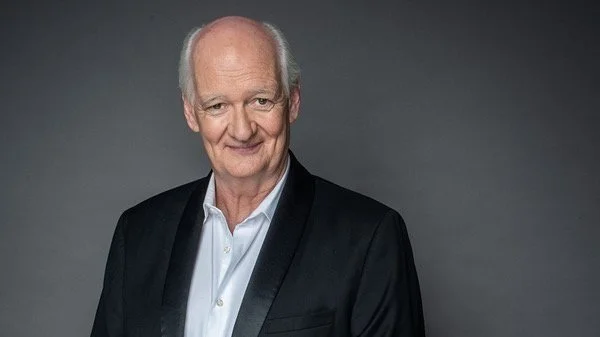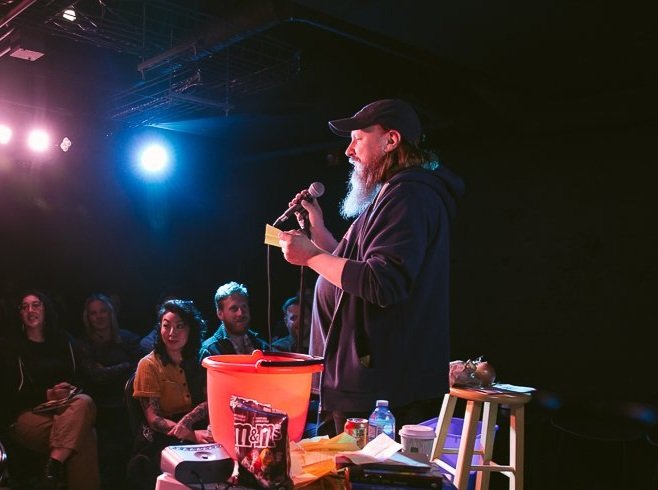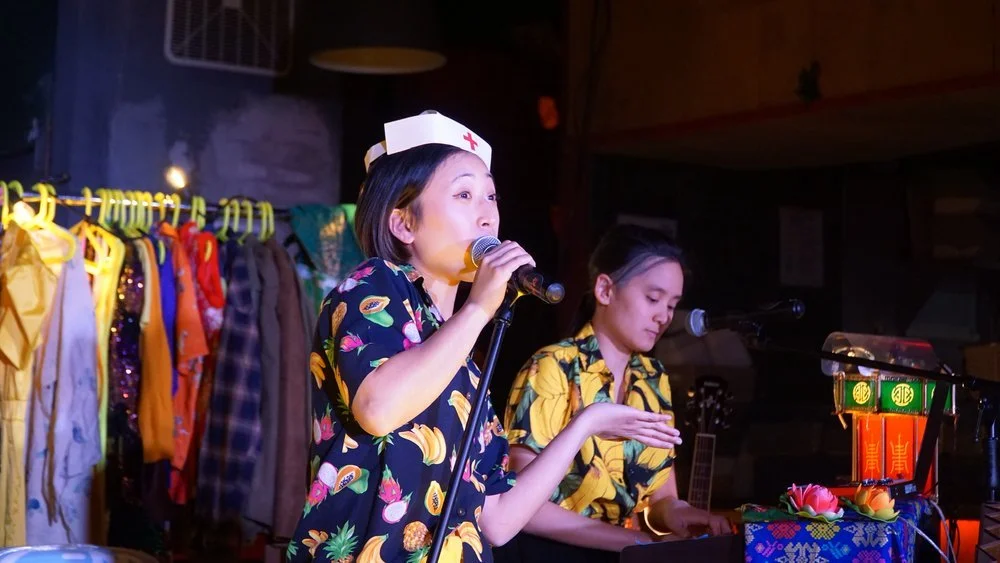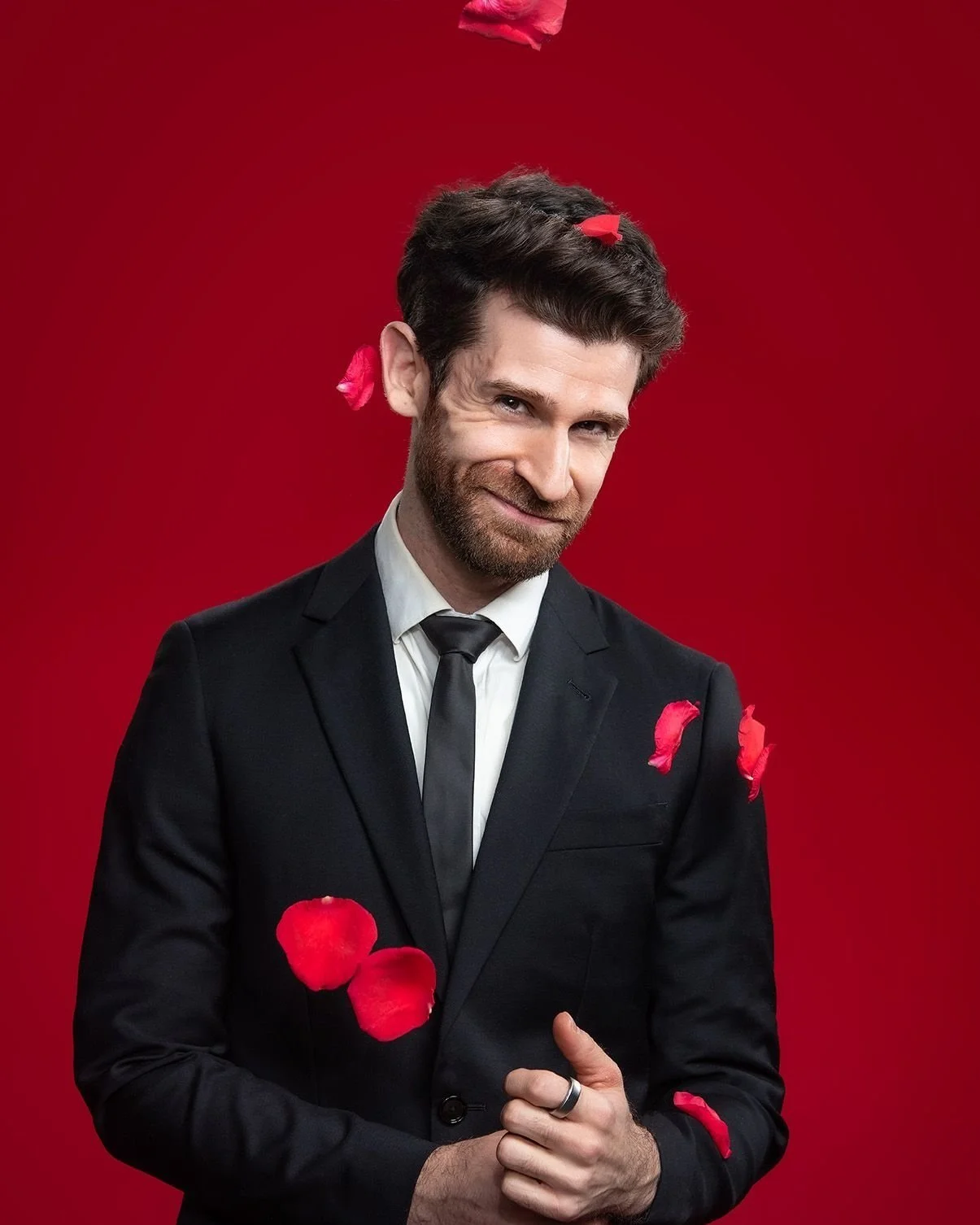IndigE-girl Comedy emboldens Indigenous women's voices in standup, at JFL Vancouver's Best of the West
Valentine’s Day Caught in the Trapline show pokes fun at pitfalls of love, “trauma bonding”, and getting caught in your crush’s trapline
IndigE-girl Comedy founder and comedian Debbie Courchene.
Caught in the Trapline premieres on February 15 at 8 pm at China Cloud Studios, as part of Just For Laughs Vancouver’s Best of the West
INDIGE-GIRL COMEDY IS CELEBRATING Indigenous humour this Valentine’s Day with Caught in the Trapline, a comedy showcase that highlights the highs and lows of Native romance as part of Just For Laughs Vancouver’s Best of the West program.
Originally a web series, IndigE-girl Comedy has expanded into standup workshops and live performances that have taken place in 10 provinces and territories across Canada. Founded by Debbie Courchene, a comedian and filmmaker with ties to the Sagkeeng and Rolling River Nations, IndigE-girl Comedy emboldens the voices of Indigenous women and rejoices in their experiences.
“Caught in the Trapline is a reference to ‘getting snagged’, or finding a partner to hook up with. It can be long-term or short-term, but it’s usually just a quick little short-term thing,” Courchene says in a phone interview with Stir. “It’s a reference to the trapline days when people would go out and snag rabbits and other small animals. Getting caught in your crush’s trapline means you’ve been caught by someone that you’re attracted to and you want to get to know better.
“We’re choosing to build the theme around that: love stories and trauma bonding, and all the romantic encounters that we have as Indigenous women—both in urban settings and on reserve, but most of the women are predominantly urban,” she adds.
Since its inception in 2021, IndigE-girl Comedy has striven to respond to the lack of female Indigenous representation within the standup circuit. It has now grown into a wide network of comedians across the country, hosting sold-out shows in Vancouver, Winnipeg, Saskatoon, Whitehorse, and Toronto.
“This initiative is really profound in that it gives space to women to play with concepts that are normally really traumatizing to us,” Courchene says. “We’re often put in places where we have to educate and tell people what our experiences are, and it can get really hard. So we created a space where Indigenous women can gather and just laugh and tell the stories that they would as if they’re around their auntie’s table.
“We hold workshops and writing sessions to give room so these women can have the internal feedback from our own circles and culture, so that we can then expand and grow the concepts that are really hard for us to talk about and make light of it,” she continues. “I find that’s the natural state of Indigenous communities: because we’re constantly under bombardment or the threat of attack, the natural response over the years of oppression has been humor.”
Courchene has long been interested in comedy, but often felt unwelcome in comedy spaces. Determined to blaze her own path, she set out on creating an initiative where the voice of her community could be heard.
“Comedy was always an interest in my life, but I was always terrified to go out, because I’ve heard horror stories of the way women get treated on the comedy circuit. That was a huge barrier for me to actually go out and actually learn and practise and throw myself out there,” Courchene says. “I’ve been really lucky, in the sense that I’ve created a space for myself and for others to be able to practise comedy and advance our skills in that way, reshaping our minds and how we address the hardships and trauma responses into something that’s enjoyable and brings happiness and celebration to our community.”
One of the key components of IndigE-girl’s mission is to improve accessibility for Indigenous women to develop their skills within comedy spaces, paying them well, making sure they have childcare, and making workshops available by Zoom.
“We work within our communities to make sure that all the barriers that are around them are protected to give them the room to have their own voice, and it’s just so profound,” Courchene says. “One participant in Whitehorse said she wasn’t going to get into comedy per se, but it really helped her shift her perspective and how she can rearrange her own thoughts to take things that seem so overwhelming and so hard to digest on a day-to-day basis, and then she was able to take her stories and shift them into a lighter way of approaching them.
“It was really profound because it creates that ability to cope and address the hardships in your life without it weighing you down and you carrying on that harm that’s been given to you,” she adds. “We give room to the women to have that comeback and to come out as a champion in their story.”
Courchene can see the impacts IndigE-girl Comedy is having on the communities she is part of, and is determined to keep growing the project. So far, it has reached every province except Alberta, the Northwest Territories, and Nunavut—as such, the creation of a new workshop in Edmonton is on the horizon.
IndigE-girl Comedy is also working toward expanding globally, starting to network with Indigenous comedians in New Zealand. “We’re trying to find cultural connections so that we can create wider networks to have a more of an international reach, and to bring more awareness to Indigenous people from Turtle Island and how our comedy shapes our culture and shapes our people,” Courchene explains.
Ultimately, the space that IndigE-girl has created serves not just Indigenous women, but allows for cultural bridges to be built with a wider audience as well.
“It’s all about welcoming people into our humour,” Courchene concludes. “There’s a lot of people who want to know what our culture is. They want to know how we experience things and they want to see us happy—there’s a lot of allies. So it’s our community as well as the people that want to see the community thrive, and there’s a great collaboration in our audiences.”













